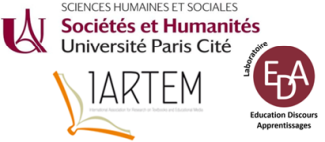This abstract introduces an ongoing research coincided by the research group of the “scientia Atque usus” Research Center for Generative Communication (a research body of the nonprofit sector founded in 1991 by Prof. Luca Toschi) dealing with the italian school system (from primary to upper secondary education) cooperates with both the environmentalist associations and the research community to promote a culture of sustainability in schools.
As we all know, schools play a key role in the education of young generations towards sustainability as it is highlighted by the Agenda 2030, and from a co-benefits perspective, it undoubtedly holds strategic importance for achieving all Sustainable Development Goals but - above all - for those developments post-2030: 'By 2030, ensure that all learners acquire the knowledge and skills needed to promote sustainable development, including, among others, through education for sustainable development and sustainable lifestyles, human rights, gender equality, promotion of a culture of peace and non-violence, global citizenship and appreciation of cultural diversity and of culture's contribution to sustainable development' (Agenda 2030, p. 17).
Sustainability education in Italy is not yet fully recognized and updated in the school system. Although, in June 2022, a law was promulgated - in italian "Salvamare Law" - that imposes a true environmental education through "the implementation of activities to make students aware of the importance of environmental conservation" as well as the promotion of appropriate practices of waste selection, recovery and reuse of end-of-life goods and products in schools.
Therefore, the italian school system can no longer postpone taking a leading role in this field, and the research group believes that sustainability cannot be treated as a subject to be added to the curriculum or - worse - as a thematic in-depth study relegated to extracurricular activities. On the contrary, the challenge that education for sustainability (which is not only environmental but also necessarily social and economic) is to face a radical rethinking of both its disciplinary organization and its social role (and therefore the relationship it activates with other social entities: from the production world to associations, from the research community to local institutions).
The main aim of the research is to define a communication model (and related tools) - based on the Paradigm of Generative Communication (Toschi 2011) - to enforce the cooperation between schools, associations and research centers to work on sustainability education in schools.
Starting from a first phase of desk research, the research have been collecting data about the type of educational contents (books, videos, etc.) that research bodies (such as INDIRE - the National Institute for Documentation, Innovation and Educational Research and CNR - National Research Council of Italy) and environmental associations (Italian Climate Network, Generation Carbon, Greenpeace, Teachers for Future, etc.) are offering to the italian schools. The research group is developing a content analysis to identify what are the main concepts and values about sustainability they are offering to schools (and of course if it is communicating within all the dimensions: environmental, social, economic).
At the same time, the research group - this is the current phase - is developing a series of in-depth interviews involving the authors of these educational contents and project managers. These interviews are aimed at analyzing how these contents offered from the research community and associations can integrate with the schools' educational offer, helping them not to see education for sustainability as an additional activity but transforming it into a principle capable of reshaping teaching, methodology, spaces, times, and relationships. The results of this analysis will be presented in a public event in which the research group will organize workshops with the stakeholders in order to co-design new solutions.
During the IARTEM conference (May 2024), the research group will be able to present and discuss the initial results of this research activity and the first prototype of communication model to help schools to cooperate with associations and research centers to promote sustainability.
References:
Anichini, A. (2021). Ripensare la scuola: oltre il COVID. Tarka
Anichini, A., Bartolini, R. (2023). Libri di testo e contenuti didattici digitali: un dialogo possibile?. Carocci
Sbardella, A. (2019). La sostenibilità scomunicata. Cosa stiamo sbagliando e perché. Apogeo.
Toschi, L. (2011). La comunicazione generativa. Apogeo.
United Nations. (2015). Transforming our world: The 2030 Agenda for Sustainable Development. https://sustainabledevelopment.un.org/post2015/transformingourworld/publication

 PDF version
PDF version
